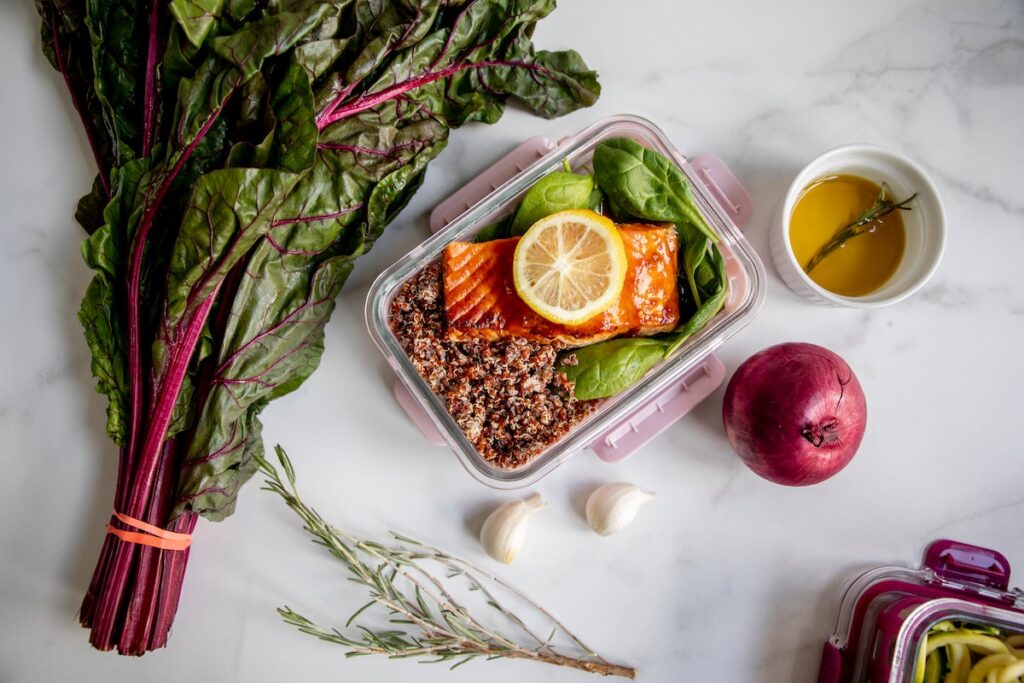5 ways nutrition affects mental health
We know that the mental health of the nation is suffering as a result of the COVID-19 pandemic. At the Institute for Optimum Nutrition’s Brain Bio Centre, where I work as a registered nutritional therapist in mental well-being, there are three areas that are taking the biggest impact: sleep, anxiety and mood.

To understand how nutrition can play a part in mental health, we need to look closely at the neurotransmitters that promote feelings of happiness, ease anxiety and help with sleep, as well as the foods that help to produce them.
Balanced diet
In an ideal world, we would want to make sure that we are eating an abundance of the foods mentioned here to ensure a healthy balanced diet. However, this may not always be possible, so we shouldn’t rule out the use of supplementation.
Here is my general guide to give you some insight into what you need but it’s important to consult your GP or nutrition professional before deciding which supplements will benefit you.
1. Tryptophan
Tryptophan is an essential amino acid that can only be obtained through diet, either from a plant-based or animal source. In turn, tryptophan can improve levels of our ‘happy hormone’ serotonin, which is beneficial for calming mood, and our ‘sleep hormone’ melatonin.
Foods rich in tryptophan include chicken, turkey, fish, eggs, spinach, tofu, pumpkin and sesame seeds.
But, in order for the body to convert tryptophan into serotonin and melatonin, it also needs essential vitamins and minerals. This is why it’s important to eat a wide and colourful range of vegetables and fruits as well.
2. Serotonin
Serotonin is of particular importance when talking about mental health and mood in the current situation.
Serotonin is manufactured in the brain and is known to promote feelings of happiness and ease anxiety.
To help promote the production of serotonin, eat foods that are rich in:
- Vitamin C (e.g. citrus fruits, strawberry, mango, papaya, broccoli, sprouts and potatoes).
- B vitamins (e.g. cheese, eggs, liver, kidney, oily fish – tuna, mackerel and salmon – and dark green vegetables like kale and spinach).
- Magnesium (e.g. avocados, beans, nuts, seeds, whole grains and even chocolate).
As always, we advocate food first, but we are all unique and individual; when it comes to nutrition, there is no one-size-fits-all.
3. Melatonin
Just as serotonin is recognised for its positive impact on mood, melatonin is recognised for its effect on sleep. Mainly produced during the night, it’s no surprise that melatonin is often referred to as ‘the sleep hormone’, playing an important role in the sleep-wake cycle.
Unlike serotonin, melatonin is naturally occurring in many foods. These include salmon, black and red rice, bell peppers, Montmorency tart cherries, sprouting lentils and kidney beans.
Melatonin supplements are often used for short-term insomnia and for feelings of jet lag but they aren’t available over the counter in the UK. Melatonin supplements are only available on prescription and your symptoms should always be discussed with your GP.

4. Taurine
Probably a little less well known, taurine is an amino sulfonic acid. This means that, unlike amino acids, it is not actually used to build protein but still has important functions around the body. It is mainly found in the brain, retina, heart and blood cells.
Cornell University has found that taurine is a strong activator of GABA (Gamma-Aminobutyric Acid) receptors, which may have an impact on mood.
Foods rich in taurine include meat such as turkey and chicken, fish, including scallops and tuna, seaweed and eggs.
5. GABA
GABA is a neurotransmitter that blocks impulses between nerve cells in the brain. If you have low levels of GABA it can lead to anxiety, mood disorders, or even epilepsy and chronic pain.
More research is needed to determine definitive proof, but early research has suggested that GABA may increase mood or have a calming or relaxing effect on the nervous system.
Foods rich in GABA include fruits, vegetables, teas and red wine.
And, of course, you can’t talk about nutrition, mental health and the pandemic without mentioning the importance of vitamin D. Its role in healthy brain function and immunity is of vital importance at a time like this, especially as we come to the end of a winter lockdown where our natural source of vitamin D from sunlight has been at a minimum.
Good sources of vitamin D include oily fish (particularly with the acronym SMASH – sardines, mackerel, anchovies, sardines and herring), red meat, liver and egg yolks.
As always, we advocate food first, but we are all unique and individual; when it comes to nutrition, there is no one-size-fits-all. I am a firm believer that small, gradual changes can make a big difference.
If you’re looking for professional information and personalised support, use the advanced search tool to find a nutrition professional who is right for you.
Since graduating from the Institute for Optimum Nutrition in 1995, Lorraine has focused her work on supporting people with mental health conditions, using a nutritional approach. The wealth of experience she has accumulated over the years has also led to her being invited to lecture widely on this topic. Her book, Food for Thought (Octopus) is available now.

Find a nutritionist dealing with Nutrition and mental health
All nutrition professionals are verified


